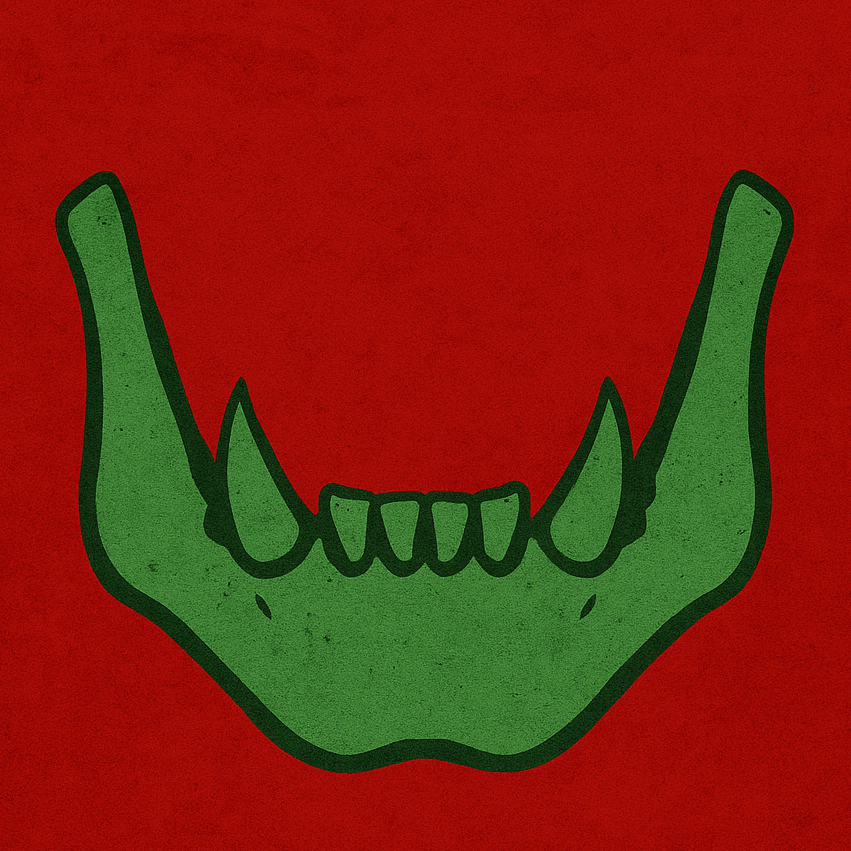Tusk Force
The Tusk Force is the most decorated division within the Army of Father War, respected by the other troops and feared by their enemies.
Known for their brutal efficiency, mobile tactics and extreme discipline, they are sent on missions that only they could accomplish: infiltration missions, manhunts, guerrilla warfare are a few of their specializations.
Composition
Manpower
The Tusk Force is an elite branch of the Army of Father War, numbering fewer than two hundred members.
Each unit is assembled according to its mission, so there is no fixed size. Generally, units consist of no fewer than four fighters and no more than ten.
This flexibility allows the force to adapt to different objectives. Skirmish Cells of 4 fighters are often used for covert missions behind enemy lines, whereas Fanguards — ten-strong units — may lead open field engagements, often tasked with protecting high value assets on the battlefield.
Between these extremes lie groups of six to eight orcs, classified as Barefeet (stealth-oriented units) or Barefangs (assault teams meant to inspire fear)
Equipment
Each unit is provided with all necessary equipment to complete their mission. Standard issue includes leather armor, rope, hooks, incendiary or explosive devices and magical potions that provide healing or other enhancements.
Weaponry
Depending on their assignment, members of the Tusk Force may choose to wield scimitars, skullcrushers or daggers.
One member is always designated as the marksman, equipped with either a longbow or a heavy crossbow, depending on the operation.
All members are decorated veterans, trained to use any weapon effectively—or, if necessary, any available means to eliminate their targets. Due to the nature of their missions, this often includes the use of exotic or unfamiliar weapons.
Structure
The Tusk Force reports directly to the General of the Army.
Within the force, no formal ranks exist until units are assigned.
Each unit consists of an even number of members and is arranged into pairs. One of these pairs acts as the command pair, the commander and lieutenant. If the commanding pair falls in battle, the most senior remaining pair assumes leadership.
Tactics
The tusk force excels at adaptive battlefield tactics. They are trained to seize and maintain the high ground, to funnel enemies into chokepoints, to conduct ambushes behind enemy lines and to strike unexpectedly.
In some cases, they may rely on hit-and-run tactics; in others, they may avoid direct combat entirely.
A notable example was the infiltration of the eastern forts, where four squads were assigned to each target. Operating under cover of night, they exploited their superior night vision. Marksmen waited until the other fighters had placed their explosive devices, then eliminated the lookouts. The entire operation concluded within minutes, leaving no survivors.
While some followers of Arjesh consider such tactics dishonorable, members of the Tusk Force are taught that nothing is more important than completing the mission.
They are the only branch of the Army known to undertake suicide missions and are equally known for their refusal to surrender, fighting to the last breath.
Training
Most members have already earned their battle scars before being selected. As veterans of waging war in Arjesh's name, they bring with them invaluable experience.
However, the training they receive upon joining is both spiritual and practical, aiming to transform them into devout, fearless instruments, with specialized skills that few orcs possess.
A trained member is a true crusader, ready to undertake any task in the name of Father War.
Logistics
Logistical Support
While operating within a larger campaign, the Tusk Force receives support from the broader army. During independent missions, they are supplied with all necessary provisions and afforded plausible deniability of any official involvement.
Auxilia
Due to their small size and specialization, the Tusk Force often requires support from other divisions. In the field, a Tusk Force squad commander holds acting authority in the absence of the General. All other units are expected to follow their lead. If multiple squads are present, the most senior commander assumes control.
In camp, Softtusks and other auxiliaries serve as squires to the Tusk Force. Members are never assigned mundane duties.
Upkeep
Because of the Tusk Force's high resource requirements, their numbers remain limited to ensure sustainability.
Recruitment
All prospective recruits must be orcs—male or female—and devout followers of Arjesh. They must be able to recite the tenets of the faith and must have proven themselves in battle. A veteran of the force must vouch for their candidacy.
History
The Tusk Force's first deployment was during the Second Invasion of Doriande, leading the vanguard of the Army over the eastern line. Its units proved themselves, by taking out the forts of the Impassable Mountains without suffering a single loss.
Later in the war, they were used extensively to aid sieges, perform special operations and cut off the supply lines between cities. Their expertise in close-quarters combat and high-value exfiltrations became irreplaceable.
Their current status is unknown, but Dorian strategists have been studying military history over the past few centuries, in an effort to create a force able to counter them in future conflicts.
Some stories, not backed by any facts, say they still operate in scattered cells, remnants who refused surrender, and continue to roam Doriande's mountains or the Whispering Forest as ghosts of war.
Historical loyalties
Only two figures command the absolute loyalty of the Tusk Force: The General of the Army and Arjesh, the god of Conquest himself.
Tusk Force banner (via Dall-E)



Thanks so much for entering the Formation Known for its Adaptability category this Summer Camp! Interesting article. God bless and much success to you with the rest of your plans for this year! <3
Check the latest in the wonderful world of WILLOWISP...
Find out what I'm up to...
Support my creative efforts <3
Thank you for your comment! If you’d like to explore more of Doriande’s lore and history, my short story The Feast takes place during the opening hours of the Second Invasion, told from the perspective of a prisoner captured by the tusk force.
thanks for sharing!
Check the latest in the wonderful world of WILLOWISP...
Find out what I'm up to...
Support my creative efforts <3